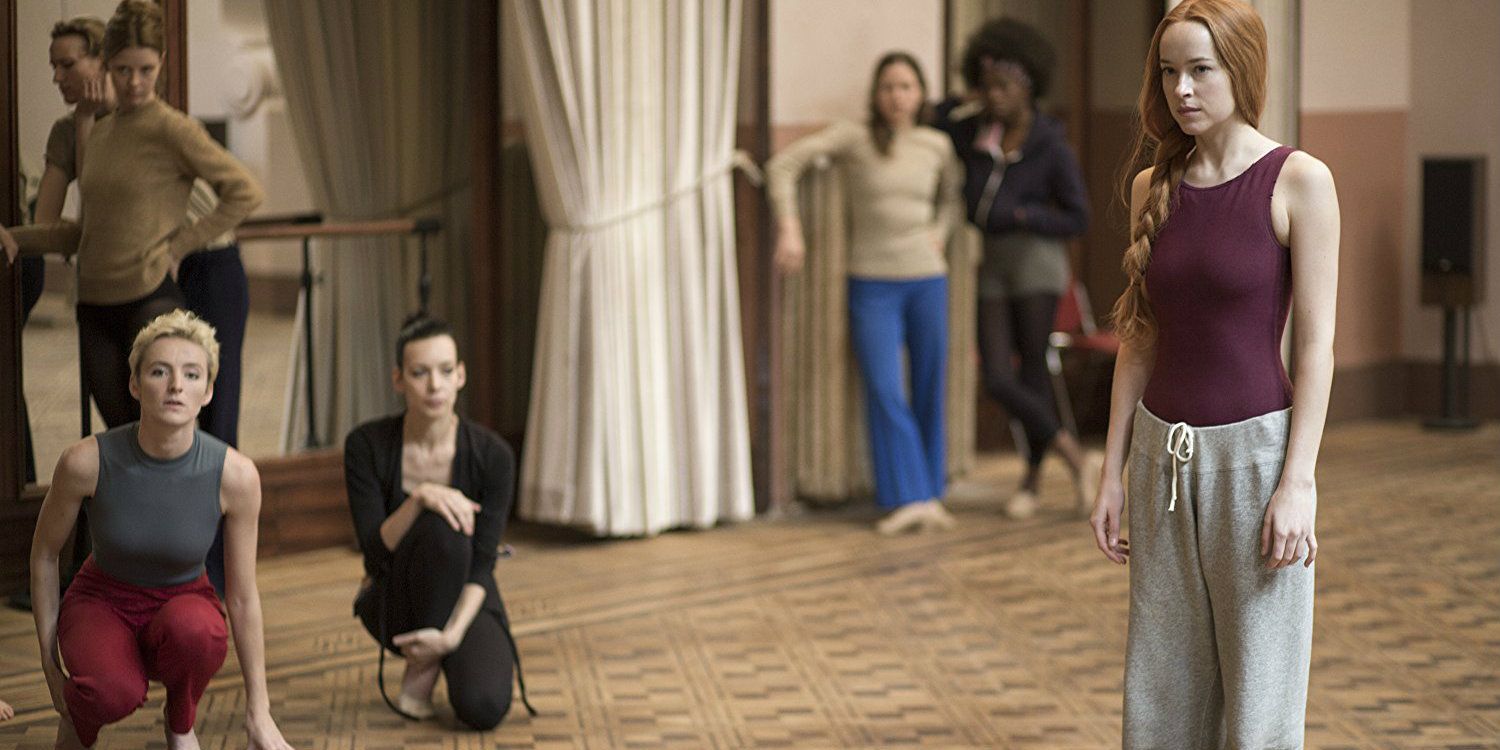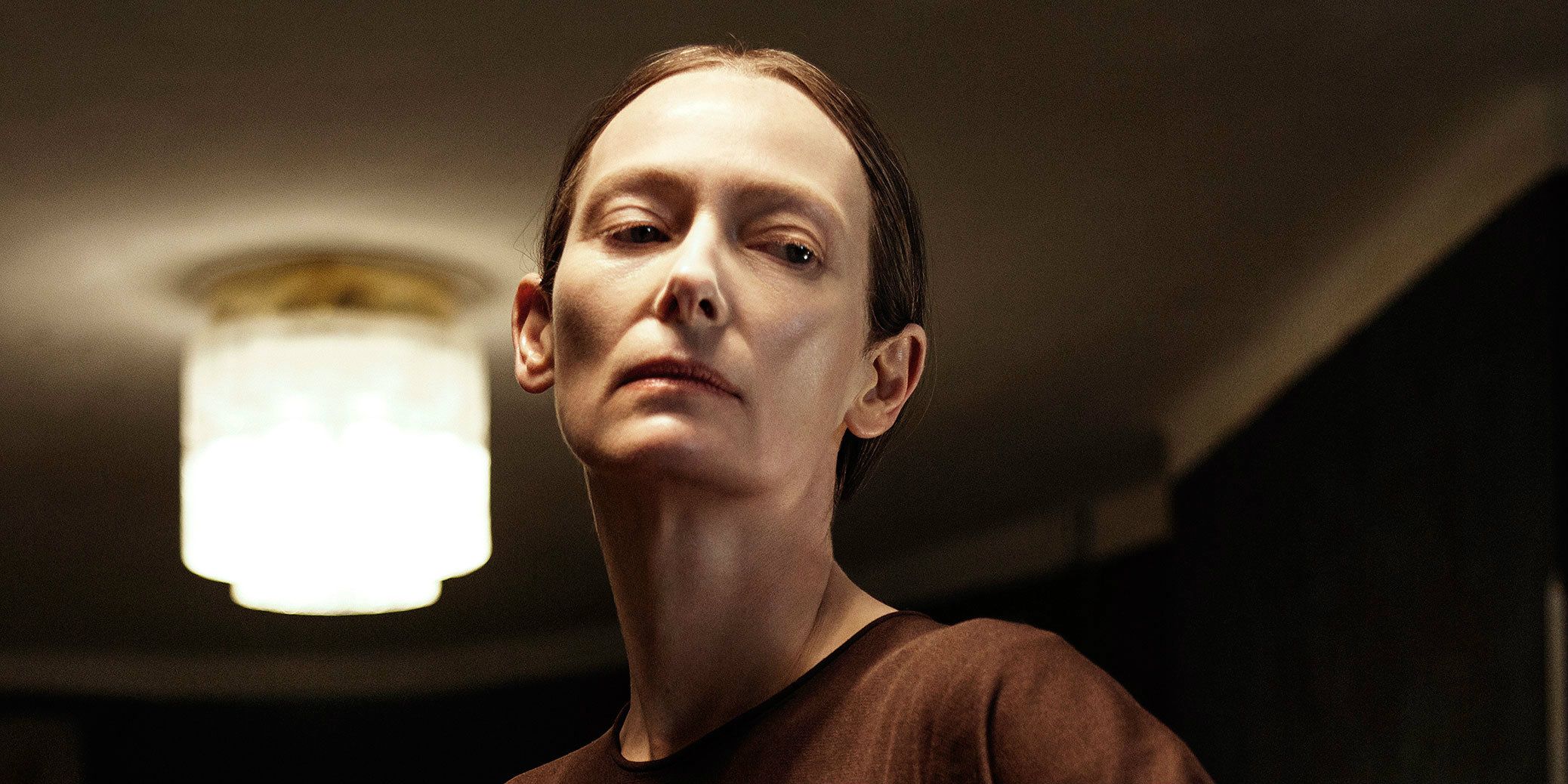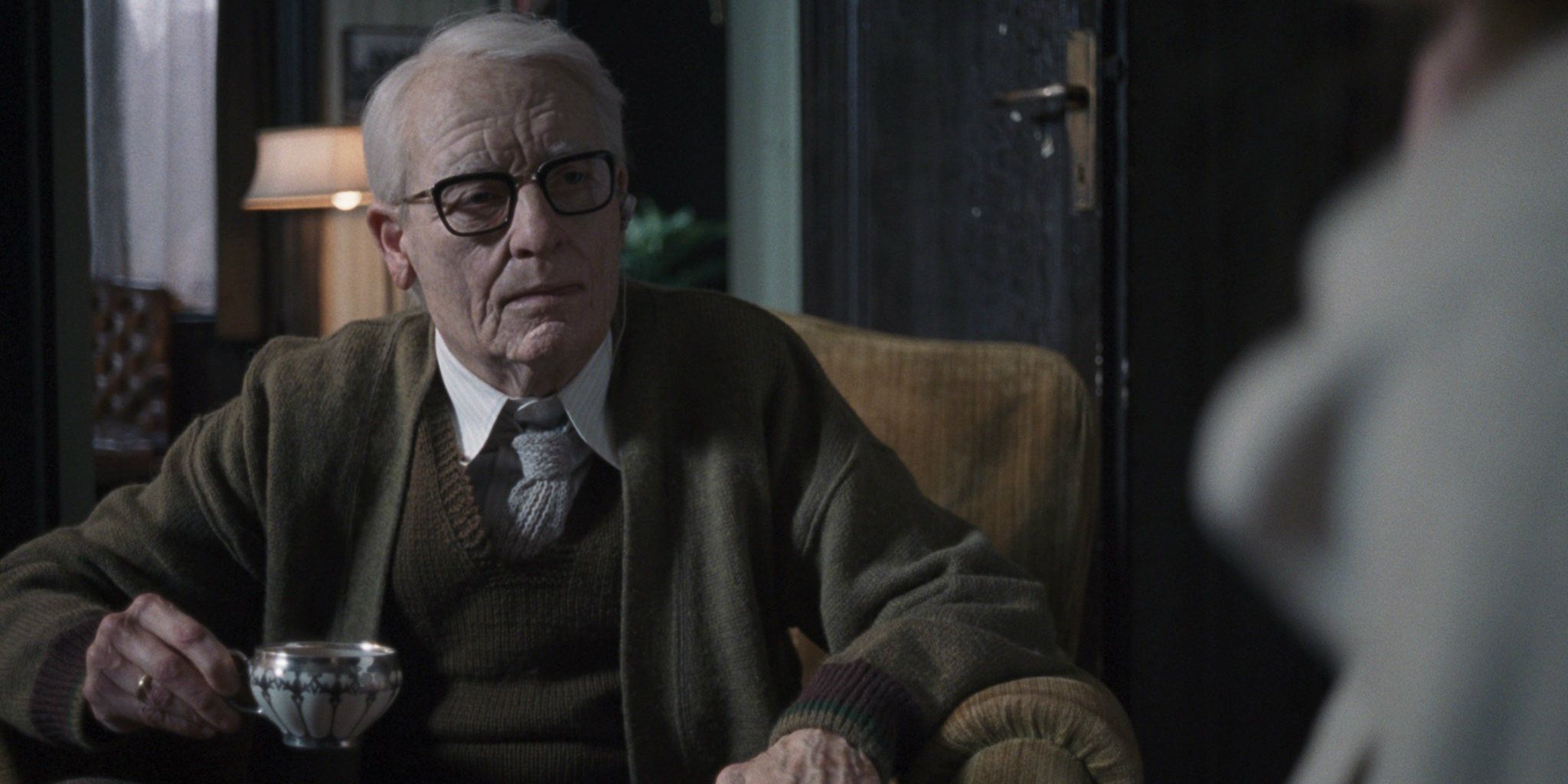
Suspiria is an alluring blend of sociopolitical allegory and visceral supernatural horror that yields imperfect, yet all the same fascinating results.
Having transported audiences to rural Italy circa 1983 in last year's Best Picture Oscar-nominated Call Me By Your Name, director Luca Guadagnino returns with Suspiria, a re-imagining of Dario Argento's cult horror film that takes viewers back in time to Germany, 1977 (the year Argento's movie was released). Guadagnino's remake, or "homage" as he calls it, has played at several major festivals over the past couple months and emerged with a reputation for being a genuinely polarizing filmgoing experience. Now that it's making its way into theaters, it's easy to grasp why the movie is so divisive. Suspiria is an alluring blend of sociopolitical allegory and visceral supernatural horror that yields imperfect, yet all the same fascinating results.
Suspiria picks up in the autumn of 1977, as American Susie Bannion (Dakota Johnson) makes her way to Berlin, in the hopes of landing a recently-vacated spot at the world-famous Markos Dance Academy. Despite having no formal training or professional recommendations, Susie manages to impress the company's director, Madame Blanc (Tilda Swinton), with her audition. Before she knows it, Susie is not only rehearsing with the other students, but even gets made the protagonist in the company's upcoming performance piece, Volk.

Meanwhile, a local psychiatrist named Dr. Jozef Klemperer (Swinton as "Lutz Ebersdorf") begins to investigate the disappearance of his patient Patricia Hingle (Chloë Grace Moretz), a former student at Markos Dance Academy who claimed the school was run by witches. As Klemperer learns more and more about Markos, he begins to realize that there's definitely more to the academy than meets the eye. However, not even the highly-educated doctor has any idea of what Blanc and her matrons really are, nor what they are planning to do with Susie.
The 2018 version of Suspiria was written by The Terror season 1 showrunner David Kajganich and, in many ways, compliments his work on that AMC series. Both Guadagnino's film and The Terror weave supernatural horror concepts into a narrative involving real-life history (in Suspiria's case, the social instability that plagued Cold War-era Germany), in an effort to create a thematically richer story. Suspiria ultimately suffers from trying to do too much, even over the course of its pretty substantial runtime (which is divided into six acts and an epilogue). At the same time, the film is effective in the way it juxtaposes the sinister, yet powerful and independent matriarchy that keeps the Markos Dance Academy running with the self-destructing patriarchal society residing just outside its walls.

Another thing that Suspiria and The Terror have in common is that they explore body horror, with the former offering a feminine perspective that compliments the masculine approach of the latter. Suspiria sustains a foreboding sense of atmosphere for long stretches of its runtime, thanks in no small amount to the beautifully depressing colors and grainy texture of Call Me By Your Name DP Sayombhu Mukdeeprom's cinematography. However, when the film does gets intense, it delivers some of the more genuinely disturbing and gruesome imagery brought to the big screen in recent memory (including, one particularly vicious sequence that's already infamous after its screening at CinemaCon earlier this year). Guadagnino and his crew further ratchet up the freakiness with their rapid editing during the movie's most surreal and otherwise dreamlike moments (which, in some cases, involve literal dreams), as well as an unsettling mix of painfully sharp sound effects, silence and Thom Yorke's beguiling score that makes the experience all the more haunting.
Johnson once again demonstrates here that those who only know her for the Fifty Shades movies really have no idea just how engaging she can be onscreen, building on her recent turn in Bad Times at the El Royale. Suspiria marks a reunion for not only Swinton and Guadagnino (who have collaborated several times already), but also the pair and Johnson, following their efforts on the 2015 thriller A Bigger Splash (which Kajganich also wrote). The trio are clearly comfortable working together by now and the onscreen chemistry between Swinton's Madame Blanc and Johnson as Susie (who form a provocative yet tender relationship) is all the more palpable for it. Mia Goth does equally strong work in her supporting turn as Sara, a fellow Markos student who was friendly with Patricia, before she forms a pretty intimate bond with Susie. As for Swinton's much-discussed turn as "Lutz Ebersdorf" playing Dr. Klemperer: the character is all the more interesting, knowing that he's played by a woman (to mention nothing of Swinton's, on the whole, quite impressive physical transformation).

A big part of why Suspiria's reception has been so polarizing thus far can be chalked up to Guadagnino's uncompromising vision. The film is overambitious in its thematic scope, resulting in a viewing experience that some will find sluggish and pretentious (and with valid reason), while others find it captivating and admirably dedicated to its slow-burn methods. If there's one thing that most everyone should be able to agree on, it's that Suspiria is a true re-imagining or "homage" and a far cry from Argento's movie (with its bold Technicolor visuals and highly-stylized gory violence). Guadagnino's "remake" comes closest to the Grand Guignol nature of its predecessor during its third act - but even then, it throws some curveballs into the mix.
It may be too divisive to pick up much traction this awards season, but Suspiria is very much worth checking out if you're a fan of either Guadagnino's previous work and/or are curious to see a radically different take on the cult horror property, flaws and all. Suspiria is clearly a passion project for its director and, if nothing else, will leave filmgoers with plenty to talk about later, from its themes to its craftsmanship (especially, the visual and audial flourishes that Guadagnino brings to the table). The movie is more than content to dance to the peculiar beat of its drum whether viewers are onboard or not, so those who are willing are advised to follow Susie's lead and give themselves to the dance.
TRAILER
Suspiria is now playing in New York and Los Angeles and expands to theaters nationwide on Friday, November 2. It is 152 minutes long and is rated R for disturbing content involving ritualistic violence, bloody images and graphic nudity, and for some language including sexual references.
Let us know what you thought of the film in the comments section!
from ScreenRant - Feed https://ift.tt/2RozxeP


0 Comments